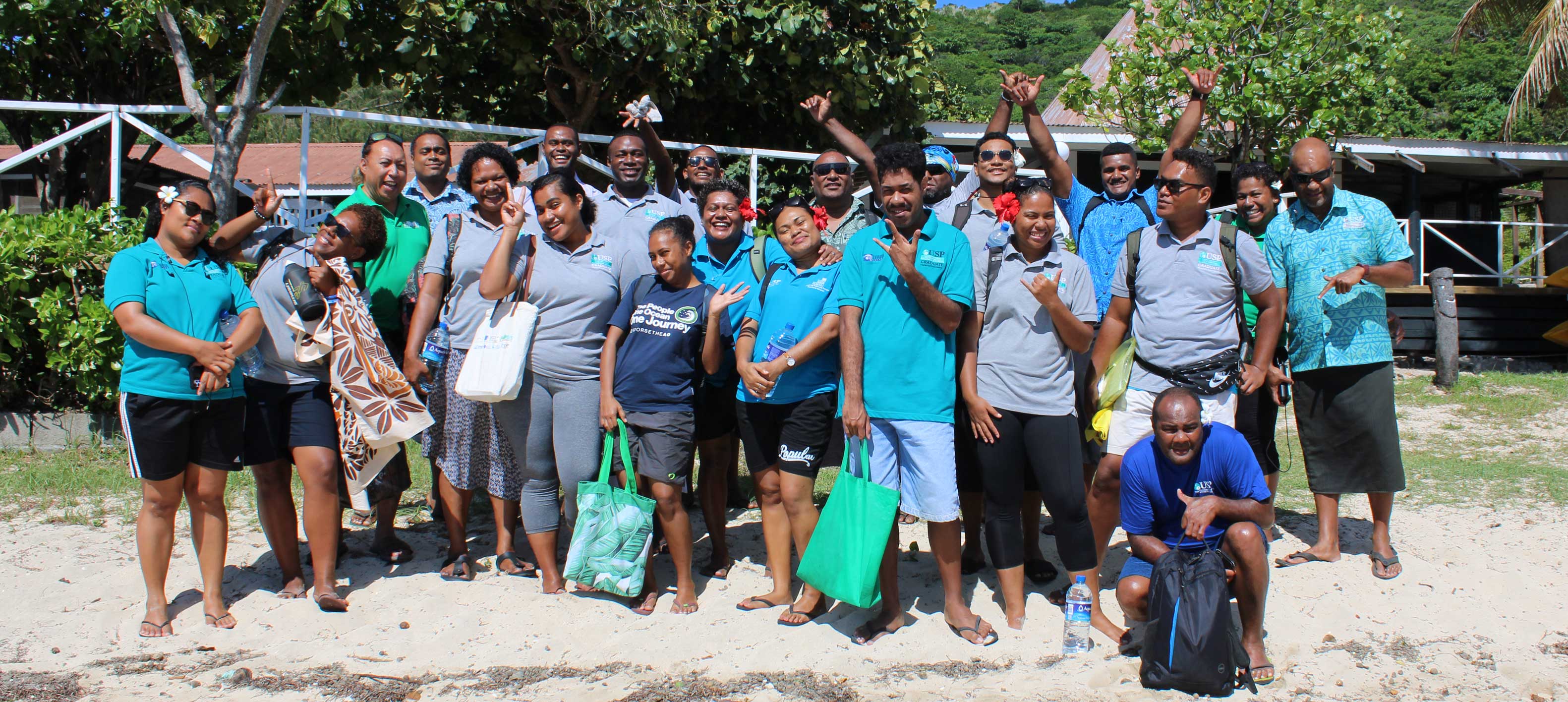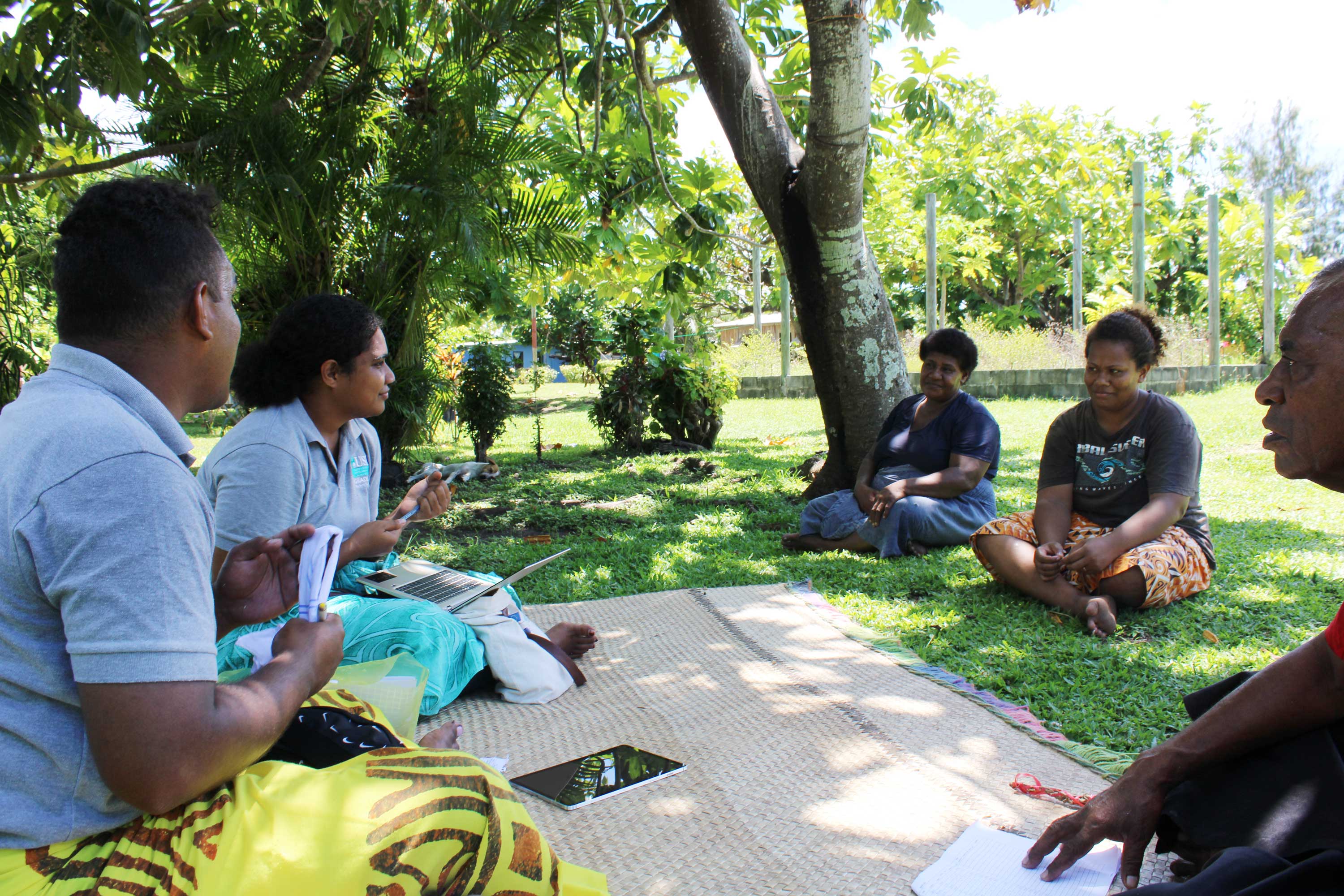Related News

Traditionally, the way of life in the Pacific Islands has served as a model for healthy living.
The Pacific Island region is well known for its communal farming practices and self-sufficiency in fresh agricultural produce.
Traditionally, the way of life in the Pacific Islands has served as a model for healthy living. However, today the region is well known for having one of the world’s highest rates of non-communicable diseases (NCDs).
NCDs are the leading cause of premature death and disability in the Pacific Islands, and the region ranks among the top ten in the world in terms of type 2 diabetes and obesity rates.
As part of the Intervention, Co-creation to Improve Community-based Food Production and Household Nutrition (ICoFaN) project in Small Island Developing States (SIDS), a team of researchers from the University of the South Pacific (USP) recently visited Yasawa to collect data and meet the communities who are implementing the food security intervention.
SIDS faces a high malnutrition burden, which has been exacerbated in recent decades by a growing reliance on food imports, the vast majority of which are of poor nutritional quality.
Using a variety of methods, the ICoFaN project assesses the impact of food security interventions on household nutrition and expenditure.
The data collected will be used to create and implement interventions aimed at improving household nutrition in the communities, working with the Foundation for Rural Integration and Enterprise Development (FRIEND) in Fiji and Richmond Vale Academy (RVA) in Saint Vincent and Grenadines in the Caribbean.
“This project is a great learning experience, especially for us here in the isolated islands where food is nearly scarce,” said Nacanieli Namataga of Teci Village.

He also expressed gratitude for FRIEND’s assistance, saying, “This FRIEND project really helps my family with nutritional and healthy foods that we have to buy from the Lautoka market.”
The short-term benefit of this intervention research will be to collaborate with cross-sector partners to co-develop innovative community-based food production interventions, directly supporting the countries’ commitment to promoting local food production and improving diets in SIDS communities.
Dr. Viliamu Iese, USP Research Leader for the ICoFaN project, stated, “This is the second impact evaluation visit to the same communities. These are the communities that have been heavily impacted by the COVID-19, as they are tourism-dependent communities.
Dr. Iese added, “The FRIEND NGO, based on a request from the communities, had co-created food security interventions with community members, USP, and research members from Exeter University, University of Cambridge, University of West Indies, and McGill University. Then FRIEND implemented with communities and partners the food security interventions to address food security issues in the targeted communities. The USP researchers are measuring the impacts of the food security intervention on diets, the health of households, teachers in schools and environment. This is participatory research in action – planning and doing research with the communities for the communities”
The USP research team is working closely with the Non-Governmental Organizations (NGO) FRIEND, Ba Provincial Council and members of the communities in Nacula and Yasawa.
We are deeply grateful for the support from the Ba Provincial Council, FRIEND NGO, Chiefs, leaders, and members of the communities in Nacula and Yasawa districts.
The USP ICoFaN research team visited numerous communities and households in Yasawa, including Bukama, Teci, Dalomo, Malakati, Naisisili, Navotua, and Nacula.
The ICoFAN project is funded by the Global Challenges Research Fund – United Kingdom Research and Innovation.